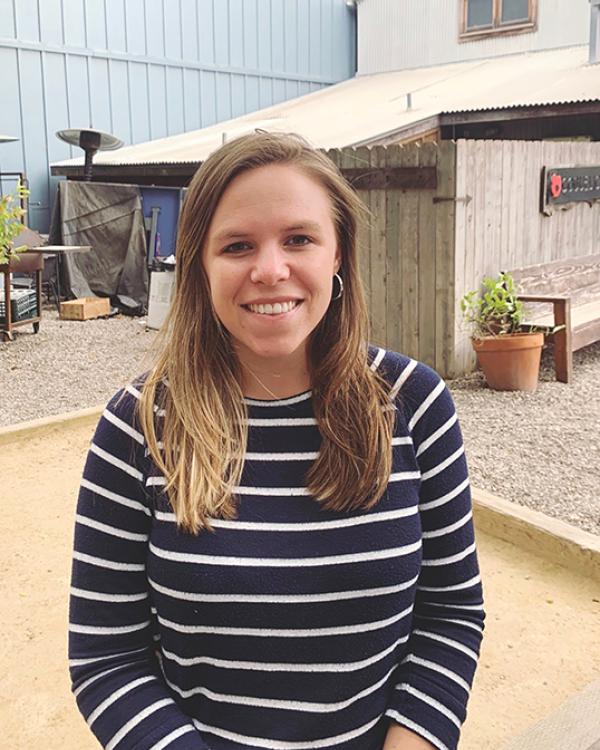
Meghan Evans is a doctoral student in the Department of Counseling, Clinical, and School Psychology studying Clinical Psychology working with Dr. Maryam Kia-Keating as her advisor. She has worked as a senior lab manager and post-baccalaureate research associate focused on the relationship between trauma and/or adverse childhood experiences (ACEs) and mental health, as well as other public health issues (i.e. community violence, housing instability, juvenile justice involvement). Her current research interests include utilizing community-based participatory methods to partner with marginalized communities and increase access to and quality of strengths-based preventive interventions for youth and families exposed to trauma and ACEs.
GGSE: Who, living or dead, do you most admire?
Evans: Two (sorry, can’t just pick one!) of the people I admire most are my parents, as cheesy as it sounds. They have taught me how to pursue goals with ambition and shown me how to prioritize compassion in whatever you do. They have been my example for how to live life with humility and an open heart, always looking for opportunities to learn and have fun along the way.
GGSE: Why did you decide to move to Santa Barbara?
Evans: I ultimately chose to attend UCSB and move to Santa Barbara because it was a great fit for me for many reasons. I really appreciated that the faculty and students I met in the CCSP program have a genuine commitment to social justice issues and interdisciplinary community-based work. I felt like this was a place I could learn not only the research and clinical skills I need, but also how to use those skills to help drive positive change for marginalized populations. Obviously, being in beautiful Santa Barbara is a huge reward in itself. As a person who grew up in California, I feel very lucky that I get to spend my next five years here and be relatively close to family and friends.
GGSE: What led you to research ACEs (Adverse Childhood Experiences) and community health issues?
Evans: I initially became interested in the relationship between trauma, adversity, and health disparities due to my parents’ involvement in foster care advocacy. As I worked on different community health issues and studied psychology and public health, I became more aware of and interested in the intertwining relationship between individual-level and societal-level adversities, social determinants of health (i.e. community violence, housing instability), and mental/physical health disparities. The desire to reduce these disparities led me to pursue a career in clinical psychology with the goal of utilizing community-based participatory methods to partner with marginalized communities and increase access to/quality of strengths-based prevention/intervention services for youth and families exposed to trauma and adversity.
GGSE: What do you do in your free time?
Evans: I try to spend as much time as I can just hanging out with my partner and our dog, Beanie. When it’s safe to do so, I cannot wait to reunite with friends and family not over Zoom. I love traveling and taking road trips, so I’m also looking forward to doing that when it’s safe. It’s been nice to be so close to the beach and beautiful trails to explore. I love reading (when I have time for fun reading, not just class reading), watching too much TV, eating lots of food, and trying my best to meditate and practice yoga. Occasionally, my partner and I will try to make cheese from scratch (to varying degrees of success).